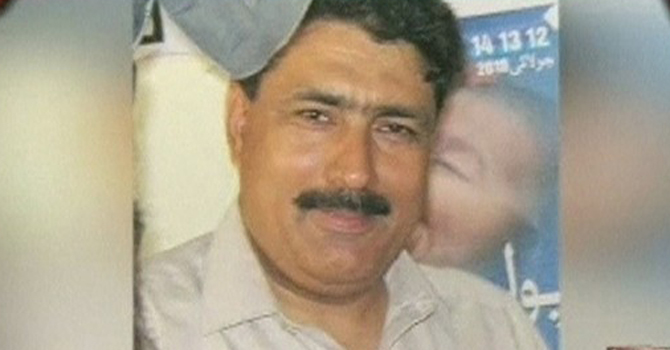
WASHINGTON, May 25: Pakistan stands isolated in the US capital as the Obama administration joins lawmakers in condemning the conviction of a Pakistani doctor who helped the CIA trace Osama bin Laden.
America’s two top foreign policy makers — Secretary of State Hillary Clinton and Senator John Kerry — also are denouncing a tribal court’s decision to jail Dr Shakil Afridi for 33 years. Both are considered “Pakistan friendly” in a country where anti-Pakistan feelings run high.
Secretary Clinton called the judgment “unjust and unwarranted” and Senator Kerry said even though he believed in “the importance of the US-Pakistan strategic relationship, realities like these make that effort more difficult”.
Senator Kerry played a key role in the passage of a $7.5 billion, five-year aid package for Pakistan in 2009.
On Thursday, a Senate panel deducted $33 million from a proposed assistance to Pakistan – $1 million for each year Dr Afridi will spend in jail.
And a New York congressman, who leads the House Homeland Security Committee, blamed the Obama administration for identifying Dr Afridi to Pakistani authorities.
“They put him there. They disclosed his identity,” Congressman Peter King told Fox News. In January, US Defence Secretary Leon Panetta told an American television channel it was Dr Afridi who had collected DNA in an effort to help locate the Al Qaeda leader.
At a Thursday night diplomatic dinner, some former US officials also endorsed the view, saying the Obama administration should have moved Dr Afridi to Afghanistan soon after the May 2 air raid that killed Bin Laden.
“We regret both the fact that he was convicted and the severity of his sentence,” Secretary Clinton told a joint press conference with New Zealand Foreign Minister Murray McCully. She pointed out that Dr Afridi “was instrumental in taking down one of the world’s most wanted murderers. That was clearly in Pakistan’s interest, as well as ours and the rest of the world’s”.
“We are raising his case and we will continue to do so because we think that his treatment is unjust and unwarranted,” she said.
Senator Kerry said Americans would have “great difficulty” in understanding the verdict, one year after the United States had found and killed the most notorious terrorist in modern history hiding on Pakistani soil.
“The most visible action being taken to find out how he came to be in Pakistan is the conviction in a Pakistani court” of the physician who helped the United States identify Osama bin Laden, he said.
“The irony is, the only person being punished is the person who helped the United States achieve justice for the murder of thousands of Americans,” he said.
A senior Pakistani diplomat who spent Thursday afternoon on Capitol Hill noted that wherever he went, he confronted a “bipartisan anger at Pakistan from very angry congressmen and women”.
The US lawmakers, he pointed out, “are not interested in our arguments, even though we tried to argue that no country allows foreign governments, even if friendly, to engage spies”.
They pointed out that in 1987 the United States sentenced Jonathan Pollard to life for spying for Israel, even though Israel is America’s closest ally.
Pakistani diplomats, who spent the last few days on the Hill, said the Obama administration was trying hard to prevent further cuts in the US aid to Pakistan.
“But the lawmakers seem very upset over the continued closure of Nato supply routes to Afghanistan,” said one of them.
“The administration is unable to hold down Republicans, who after this weekend’s Nato summit in Chicago, seem convinced Pakistan should be written off for not opening the routes and for acting against US interests.”
Other diplomats also noted that no friends on the Hill were willing to speak for Pakistan.
“Isolate Pakistan seems to be the new plan,” said one of them. “US-Pakistan relationship is entering a very bad phase.”
The diplomats pointed out that the Pakistan Embassy in Washington had warned Islamabad not to delay the reopening of supply routes but the advice was ignored.














































Dear visitor, the comments section is undergoing an overhaul and will return soon.